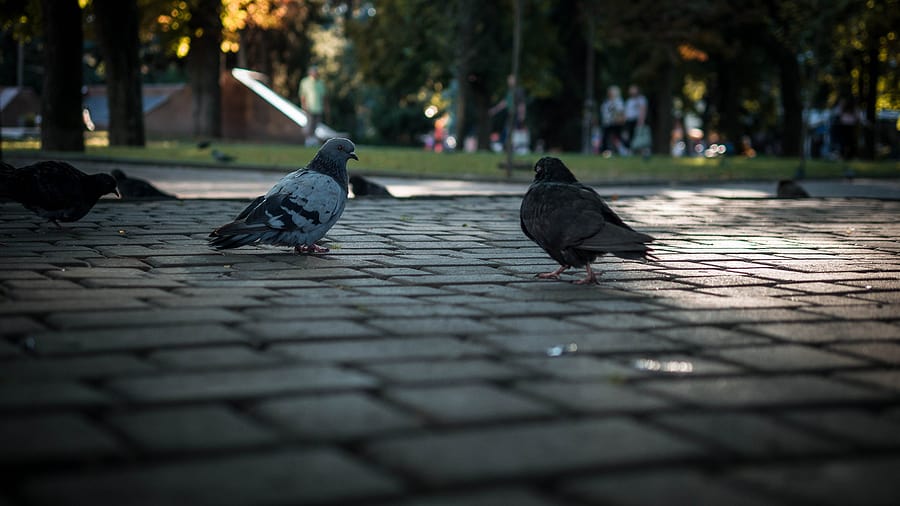READY TO GET STARTED?
REQUEST A FREE ESTIMATE
Fill out the form below or call (888) 466-7849 for a free, no-obligation estimate.

While some people consider pigeons a minor nuisance, they can actually be harmful to humans. Pigeons are the most common nuisance bird and are also responsible for the worst public health concerns caused by birds. Pigeons are capable of spreading more than 60 pathogens to humans, mostly through their droppings. Besides the obvious means of transmission by handling pigeon feces, what many don’t realize is pigeon droppings that are left on cars, windowsills, and even the street can dry into a powder that can be blown into the air and inhaled. The most common diseases spread by pigeons are E. coli, histoplasmosis, and salmonellosis.
Pigeons are also capable of damaging and destroying your property. Nests can interfere with the functioning of air conditioning units and electrical elements. Pigeon droppings can also accumulate, causing surfaces to become slippery. Their feces can also deface and deteriorate buildings and other structures.
Pigeons prefer to nest in small, flat areas that are off the ground (e.g. ledges, air conditioning units, pipes, and window sills). They eat a varied diet, consuming anything from grains and livestock feed to discarded food scraps and manure. They must have water daily to survive.
Pigeons adapt easily to their environments, including those that are manmade. They will travel up to 5 miles between their nesting and roosting sites, making it very difficult to get an established flock to move. Their homing capabilities allow them to easily find their way back to their original nesting sites.
Get rid of nuisance pigeons with these bird prevention tips:
If you suspect you have a problem with pigeons or any other nuisance pests, contact a professional pest control company for a free evaluation.
Are Termites Active Right Now?
A New Year’s Resolution: Keeping Pest-Free!